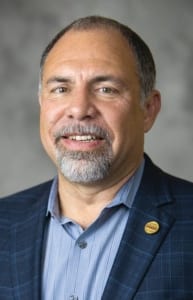Nashville, TENN. – Today Gov. Bill Lee announced that a portion of Tennessee’s aid from the federal Coronavirus Relief Fund would be used to expand access to broadband service. The newly created Tennessee Emergency Broadband Fund will expand broadband access to better facilitate participation in telemedicine, distance learning and telecommuting.
“The coronavirus pandemic has underscored the digital divide that exists in Tennessee,” said Mike Knotts, vice president of government affairs with the Tennessee Electric Cooperative Association. “Never before has the need for broadband access been greater or the limitations for Tennesseans who can’t access the internet been more obvious. The Tennessee Emergency Broadband Fund will help bring this essential service to many of the homes and businesses that need it most.”
Since the passage of the Tennessee Broadband Accessibility Act in 2017, 14 of Tennessee’s 23 electric cooperatives have launched broadband projects, and Tennessee’s electric co-ops have proven their ability to maximize state and federal funds. For every dollar of grant money received, Tennessee co-ops are investing $15 of their own money. This multiplier means that Tennessee electric co-ops are stretching grant funds further to have the greatest impact.
“The Tennessee Emergency Broadband Fund can position Tennessee to better respond to the current pandemic and be better prepared to face the challenges that will come our way in the future,” said Knotts. “The impact of this investment will be felt for years. We appreciate the vision of Gov. Bill Lee and Commissioner of Economic and Community Development Bob Rolfe as well as Lt. Gov. Randy McNally, Speaker Cameron Sexton, Senate Finance Chair Bo Watson and House Utilities Chair Pat Marsh. Their allocation of these funds will positively impact tens of thousands of Tennesseans.”
Learn more at tnelectric.org/broadband.
FOR MORE INFORMATION
Trent Scott | Vice President of Corporate Strategy | 615.515.5534 | [email protected]



